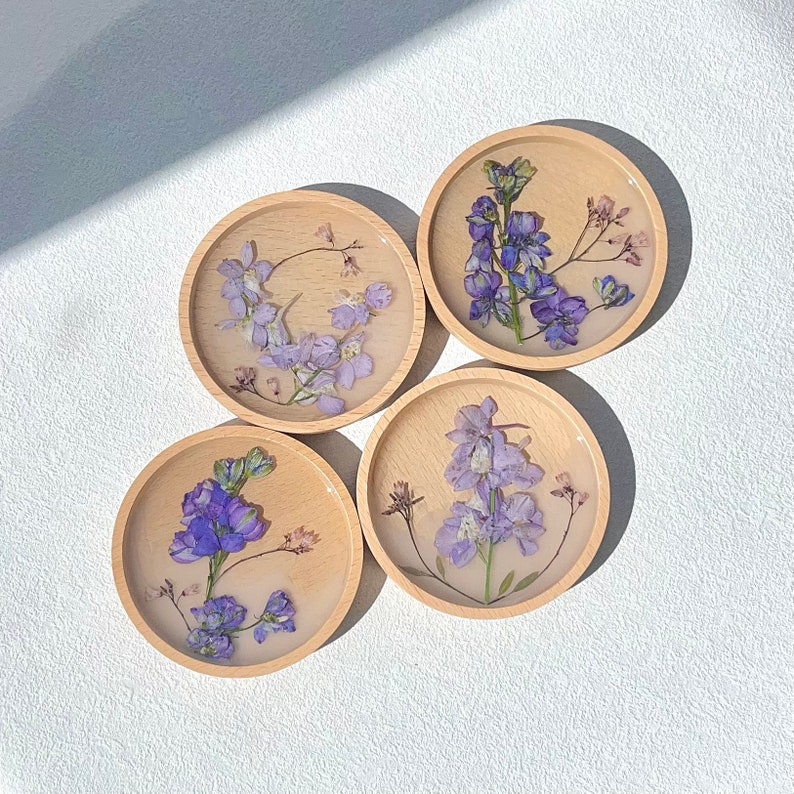News
Why Choosing Handmade Products is an Eco-Friendly Decision
As environmental awareness continues to shape consumer behavior, more people are seeking sustainable alternatives to mass-produced goods. Handmade products not only showcase exceptional craftsmanship and aesthetic appeal but also offer significant environmental benefits.
If you appreciate pressed flower coasters or botanical wood drink coasters, here’s why they make a sustainable and eco-friendly choice.
1. Lower Environmental Impact in Production
Mass production in large factories requires high energy consumption, excessive water usage, and the release of harmful pollutants. In contrast, handmade products are usually crafted in small batches, significantly reducing their environmental footprint.
Handcrafted items rely on traditional techniques that eliminate the need for electricity-intensive machinery. By choosing handmade, consumers contribute to a production system that minimizes waste and pollution.
For example, a pressed flower coaster is created without industrial machines or synthetic chemicals, preserving the natural integrity of the materials.
2. Sustainably Sourced and Natural Materials
Many artisans prioritize ethically sourced, biodegradable, and sustainable materials. This approach enhances product quality while reducing environmental harm. Handmade goods often avoid synthetic components, making them compostable or recyclable.
Common sustainable materials in handcrafted products include:
- Natural and reclaimed wood for home decor
- Pressed flowers and real leaves for artistic designs
- Beeswax or plant-based oils for natural finishing
These materials are carefully harvested and processed with minimal environmental impact, supporting eco-conscious craftsmanship.
3. Reduced Waste and Overproduction
One of the biggest environmental concerns with mass production is overproduction, leading to excess inventory that often ends up in landfills. Handmade businesses, however, operate on a smaller scale, producing only what is needed or creating made-to-order pieces.
By focusing on small-batch production, artisans significantly reduce waste. Many also repurpose leftover materials for new creations, ensuring resources are used efficiently.
For example, leftover wood from larger projects can be transformed into beautiful pressed flower coasters rather than being discarded.
4. Lower Carbon Footprint
Handmade products typically have a shorter supply chain, resulting in lower carbon emissions. Large-scale manufacturing involves transporting raw materials to factories and then shipping finished products globally, contributing heavily to carbon emissions.
In contrast, handmade products are often sourced and sold locally, reducing transportation-related emissions. Purchasing directly from artisans eliminates unnecessary logistics, further minimizing environmental impact.
For instance, buying a botanical wood drink coaster from a local craftsman ensures it doesn’t travel across continents before reaching your home, unlike mass-produced alternatives.
5. Eco-Friendly Packaging
Plastic waste from packaging is a significant environmental issue. Many handmade businesses prioritize sustainable packaging by using recycled, biodegradable, or minimal materials.
Common eco-conscious packaging choices include:
- Recyclable kraft paper for wrapping
- Biodegradable materials like jute or natural fiber twine
- Recycled cardboard for shipping
Some artisans even encourage customers to return packaging for reuse, promoting a circular economy.
6. Supporting Local and Sustainable Economies
Choosing handmade products means directly supporting small businesses, artisans, and craftsmen who often follow sustainable and ethical practices. This support strengthens local economies while fostering environmentally friendly production methods.
Handmade businesses tend to invest in their communities by sourcing materials locally and preserving traditional craftsmanship. This benefits both the environment and cultural heritage.
7. Durability and Longevity
Handmade products are often crafted with meticulous attention to detail, making them more durable than mass-produced alternatives. High-quality handmade pieces reduce the need for frequent replacements, ultimately decreasing waste and overconsumption.
For example, a well-made wooden coaster or a pressed flower drink coaster can last for years, reducing the demand for disposable alternatives and minimizing environmental waste.
8. Personal and Emotional Value
Handmade items often carry a personal touch that mass-produced products lack. Purchasing from artisans means supporting their craft and passion, adding sentimental value to each piece.
This emotional connection encourages consumers to take better care of handmade products, repair them when necessary, and keep them for extended periods, reducing waste.
Handmade products are not just objects; they are works of art with stories behind them. Whether it’s a botanical wood drink coaster or a pressed flower coaster, these pieces add warmth and character to any home while promoting sustainability.
Conclusion
Handmade products offer a compelling alternative to mass-produced goods, aligning with the growing demand for sustainable and ethical consumer choices. From reducing environmental impact and minimizing waste to supporting local artisans and using sustainable materials, handmade goods are a responsible and meaningful investment.
As more people embrace eco-conscious living, the appeal of handmade products continues to grow. Choosing handmade is a simple yet impactful way to contribute to a greener, more sustainable future while enjoying beautifully crafted items that bring both function and charm to your home.

